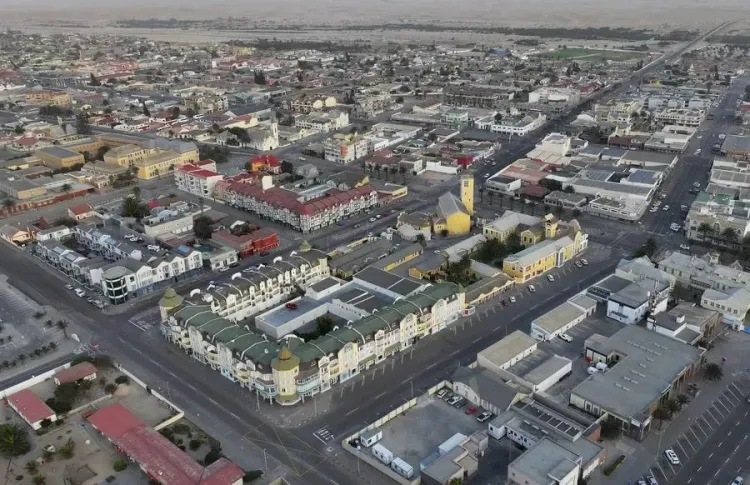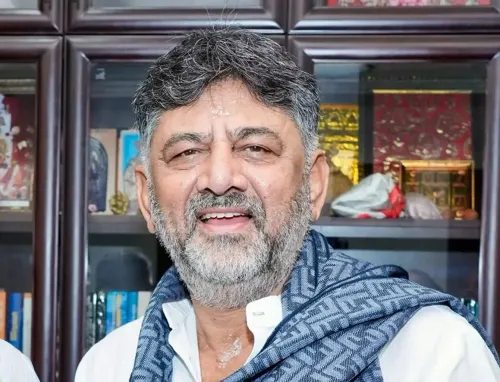How is Namibia Planning to Address Rural Gaps in Water, Roads, and Digital Access?

Synopsis
Key Takeaways
- Infrastructure development is key to economic growth.
- Access to clean water is a fundamental health issue.
- Bridging the digital divide is essential for youth.
- The school rehabilitation campaign aims to enhance learning environments.
- Utilizing skilled graduates can boost national development.
Windhoek, Aug 31 (NationPress) Namibian Prime Minister Elijah Ngurare has made a commitment to intensify efforts aimed at tackling rural development issues, such as the absence of clean water, feeder roads, and digital connectivity. This initiative is part of the government's pledge to foster a more inclusive society.
During his address in northern Namibia on Saturday, Ngurare pointed out that numerous rural households still lack basic services, even decades post-independence.
He stated, "The absence of reliable access to clean water poses a fundamental challenge that impacts not only health but also the ability to thrive." He emphasized the government's determination to enhance the supply of potable water, rural roads, and electricity to underprivileged areas.
Ngurare remarked that infrastructure development is core to Namibia's growth strategy, asserting that robust infrastructure is essential for economic advancement as it connects communities, aids farmers in reaching markets, and ensures children can safely attend school, as reported by Xinhua news agency.
He also underscored the importance of narrowing the digital divide, noting that rural youth require reliable internet access to study and compete globally. He mentioned that new information and communication technology towers were recently established to improve coverage in previously underserved areas.
Ngurare urged communities to collaborate with the government, transforming current challenges into opportunities for future generations.
On August 29, the Namibian government launched a nationwide school rehabilitation campaign aimed at repairing dilapidated infrastructure across all 121 constituencies.
The campaign was officially initiated by the Prime Minister at Mukuvi Primary School in the Kavango East Region of northeastern Namibia.
This initiative seeks to ensure that all Namibian schools are equipped with functional ablution facilities, laboratories, and other essential utilities.
This is part of a broader vision to cultivate a conducive learning environment that aligns with national education objectives, as stated by the Office of the Prime Minister.
The government plans to leverage the skills of unemployed graduates from vocational training centers and community members with relevant expertise to execute the work, as mentioned in the statement.
In his address, Ngurare highlighted that the nation has produced skilled graduates from technical and vocational institutions who are poised to contribute to national development.
He encouraged the government and stakeholders to tap into this valuable human resource, clarifying that this campaign should not be misconstrued as a political maneuver but rather recognized as a significant step toward creating a humane and inclusive educational environment for every child in Namibia.
For the financial year 2025/26, Namibia has allocated 24.8 billion Namibian dollars (approximately 1.4 billion US dollars) to the education, innovation, arts, and culture sectors, representing the largest segment of the national budget.










